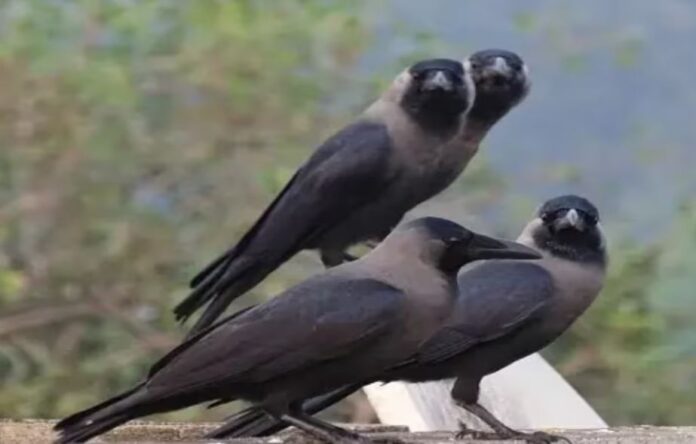Danson Safari, a Kenyan farmer, has been compelled to abandon poultry rearing after losing hundreds of chickens to aggressive Indian house crows, an invasive species that is rapidly multiplying along the country’s coast. The alarming increase in their population has prompted Kenyan authorities and conservation groups to turn to a chemical called starlicide to eliminate the pests while minimizing harm to other bird species.
Originally introduced to East Africa from the Indian subcontinent in 1891, Indian house crows are estimated to number nearly one million in Kenya today. Their proliferation has dramatically impacted the populations of native bird species, as highlighted by Kirao Lennox, a research scientist at the conservation group A Rocha Kenya.
Also Read: China Launches Nationwide Survey to Address ‘Fear of Having Children’
“They are now preying on our indigenous species, targeting nests, eggs, chicks, and even adult birds,” Lennox stated. “Without natural predators to keep their numbers in check, they are overwhelming the ecosystem, leading to the decline of native species.”
Since the deployment of starlicide, around 200 crows have been killed in just one month in the coastal town of Watamu, according to Eric Kinoti, a crow control officer at A Rocha Kenya. He has noted sightings of the crows along the road connecting the port city of Mombasa to Nairobi, raising concerns that they could further threaten biodiversity, particularly in Nairobi National Park, which is home to hundreds of bird species.
“We don’t want them to reach Nairobi,” Kinoti warned. “When they enter that ecosystem, they will completely eliminate other bird species.”
Key Points:
- Farmer’s Struggles: Kenyan farmer Danson Safari was forced to stop poultry farming after losing hundreds of chickens to aggressive Indian house crows.
- Invasive Species: Indian house crows, introduced to East Africa from the Indian subcontinent in 1891, have proliferated to nearly one million in Kenya.
- Impact on Native Birds: The crows are dramatically reducing populations of native bird species by preying on nests, eggs, chicks, and adult birds, according to Kirao Lennox from A Rocha Kenya.
- Starlicide Deployment: Kenyan authorities and conservation groups are using the chemical starlicide to control the crow population while minimizing harm to other bird species.
- Casualties from Starlicide: Approximately 200 crows have been killed in one month in Watamu since the deployment of starlicide.
- Threat to Nairobi: Eric Kinoti, a crow control officer, expressed concerns that the crows could reach Nairobi, threatening biodiversity in Nairobi National Park, which is home to hundreds of bird species.



